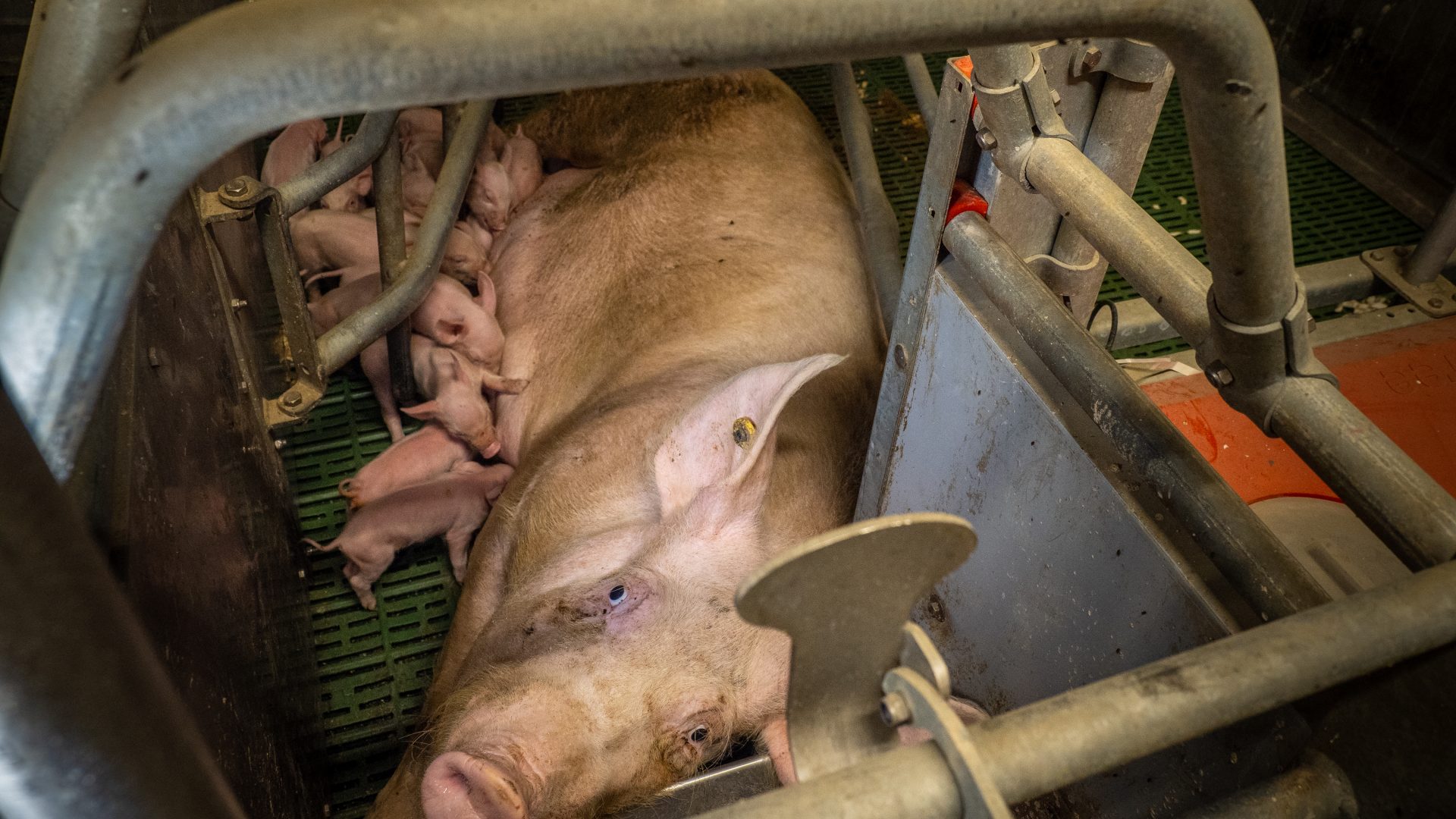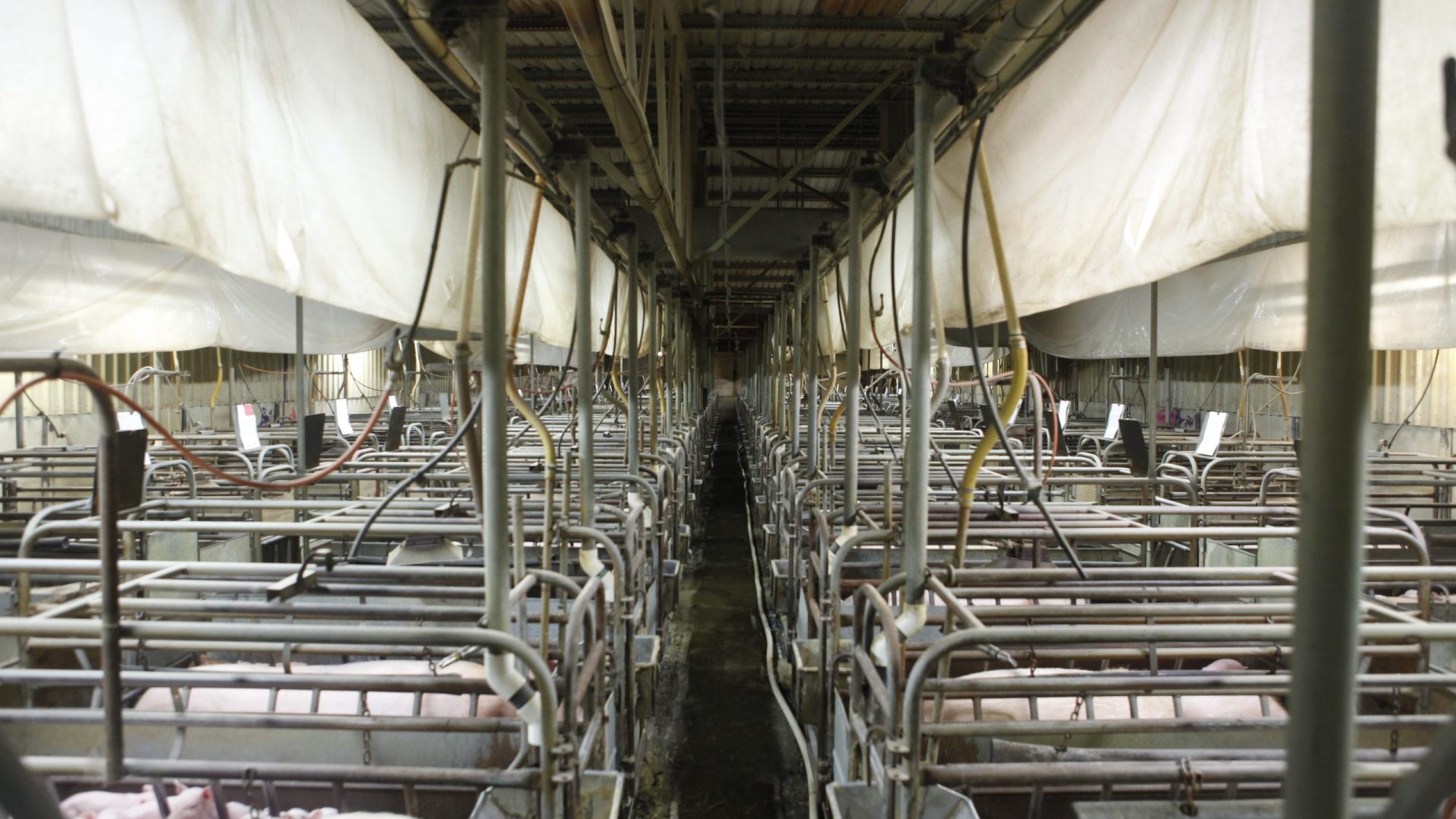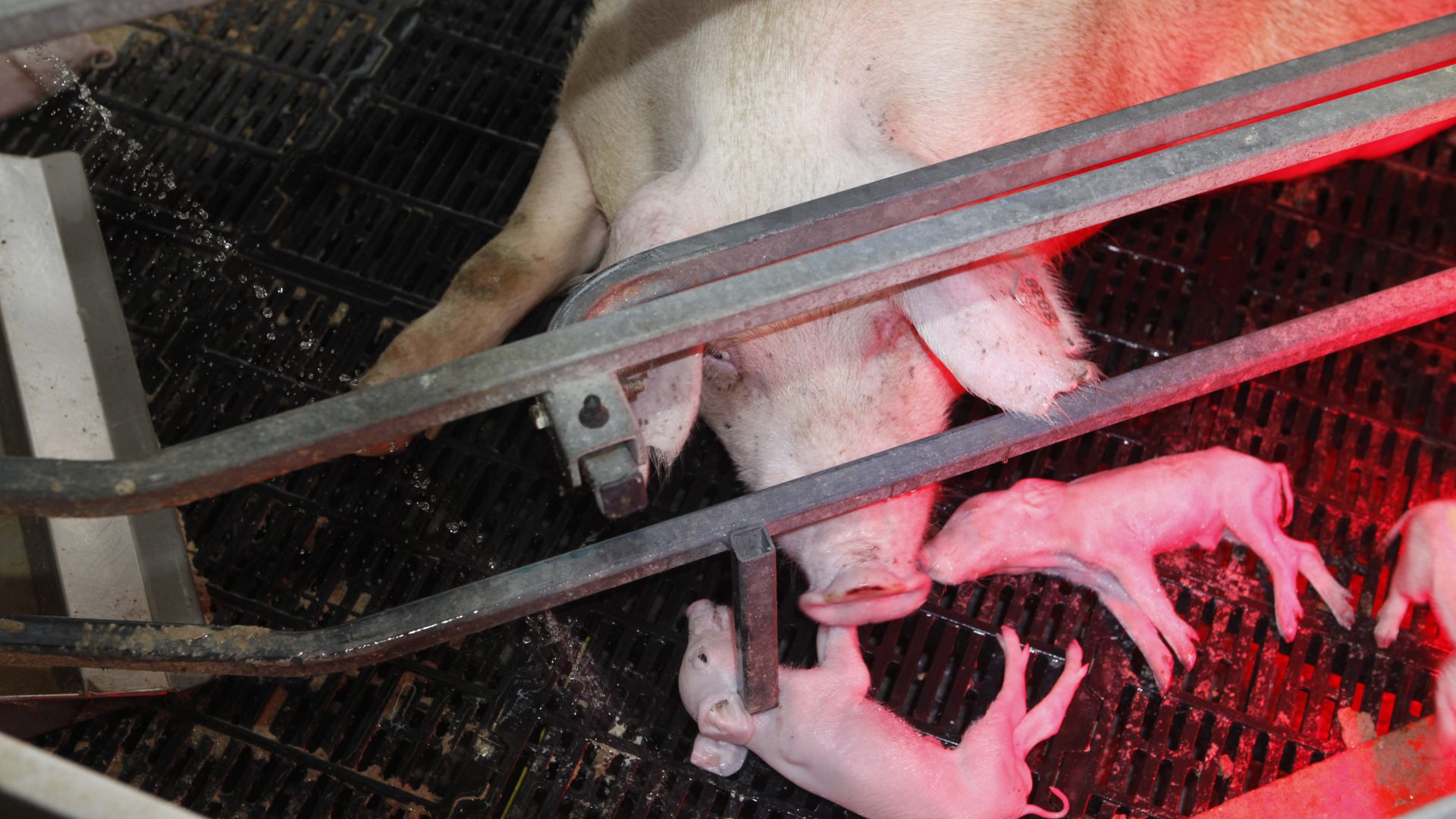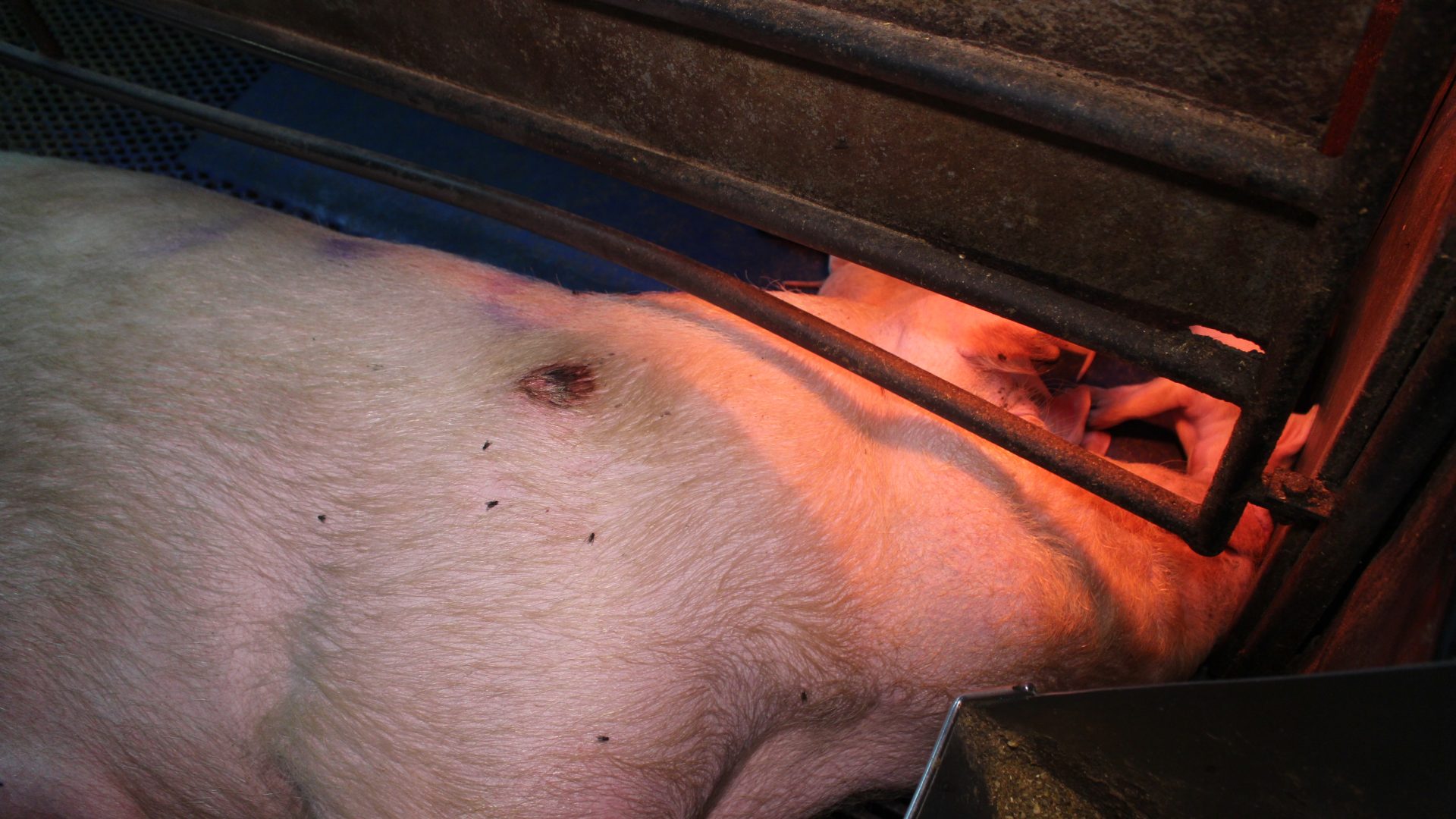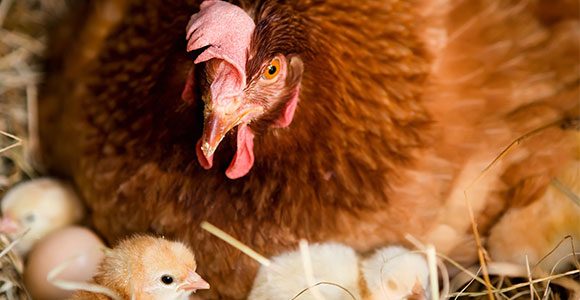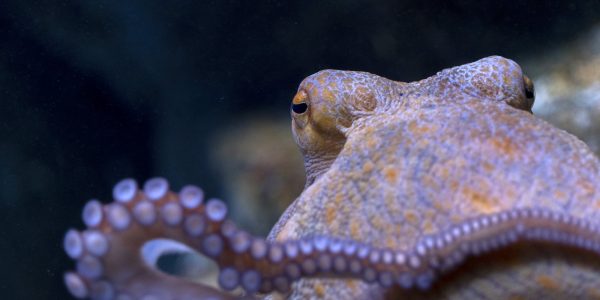What is a farrowing crate?
Farrowing crates are cold, hard metal cages with steel or concrete floors. In factory farms around the world, it’s standard practice to transfer mother pigs to a farrowing crate 7-14 days before she gives birth to her new piglets. After birthing (in a process known as ‘farrowing’), she remains confined in these metal ‘maternity’ crates for 3-4 weeks until her piglets are weaned.
Farrowing crates are so small a mother pig can barely move – she can only sit, stand or lay down slowly, and with difficulty. Pigs are naturally very clean animals, and when given the choice, never toilet where they eat, sleep or play. Instead, they will often travel far away to relieve themselves. But trapped in a farrowing crate, she can only take one step forward or back and is forced to urinate and defecate right where she stands. For mother pigs, this unhygienic behaviour causes her extreme stress, discomfort and heightens her risk of disease.



